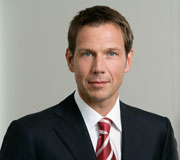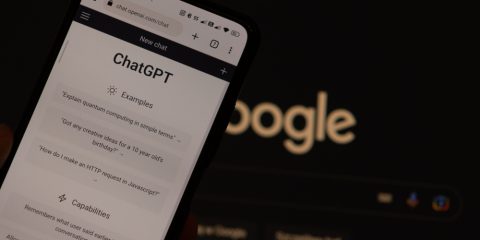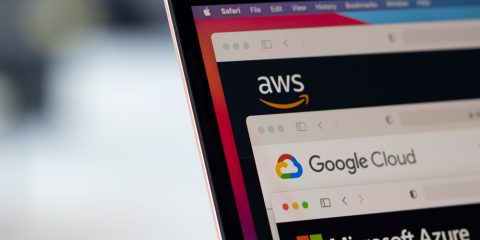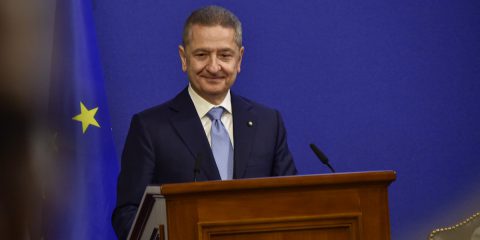Unione Europea

ETNO: Mr. Obermann, Deutsche Telekom seems to be focusing on new businesses like cloud services. Don’t you believe in telco business anymore?
Mr. Obermann: Network operators are facing tough times these days – that is one of my favourite sentences. Yet it is only half of the story, leaving out the opportunities facing our industry. Yes, prices and revenues from traditional business have come down. At the same time traffic, however, in the mobile networks has gone through the roof. Who benefits from this? Today, it is mostly the OTT players that build their services on cheap and fast lines. But I see an open window to participate in the new growth. I see a silver lining.
ETNO: What would that be?
Mr. Obermann: I believe in the next big trends in our industry: After everything went mobile, the cloud is now becoming an integral part of our infrastructure. It gives operators a marvellous opportunity to make the most of their assets. Revenues could grow again in future – if regulation does not prevent the framework that is needed. I am thinking, for example, of the implementation of quality of service in our networks to offer our customers products with a guaranteed quality level. And I believe they are willing to pay for it.
ETNO: So Deutsche Telekom is changing?
Mr. Obermann: We are reinventing ourselves. On the one hand we are developing innovative business models to achieve new growth. Cloud services are a good example of that, but definitively not the only one. Moreover Deutsche Telekom is seeking new partnerships with innovative internet companies so that we can reduce our dependency on traditional telecoms business. But if we want to combine the traditional infrastructure business with new over-the-top services, we need to make sure we have sufficient fast mobile and fixed network capacity. Therefore we have to find new ways to push the broadband rollout. The networks remain our basis and we have to invest billions to make sure they can keep up with the explosion in data traffic.
ETNO: What are the main factors that are reducing traditional revenues?
Mr. Obermann: There is harsh competition and it is not always fair. Take the cable operators for example which are not willing to grant access to their infrastructure, whereas we are fully regulated. We need a level playing field between these two infrastructures, either through deregulation or symmetric regulation. For the time being regulation – both at the European and the national level – hasn’t really changed. Even though we hear a lot about investment incentives it still mainly focuses on popular price cuts.
ETNO: What are your expectations of governments and regulators?
Mr. Obermann: Europe faces a severe crisis. We and other operators are willing to make an active contribution to guiding Europe towards new growth. Our networks are the backbone of our economy and we want to strengthen them. But when it comes to fibre I don’t see why regulatory measures should be necessary: I believe in open access and Deutsche Telekom will let its competitors use the fibre network. On the other hand, we seek access to their infrastructure as well. In Germany we have shown that we are willing and able to find new pricing models for fibre and VDSL together with our competitors on a voluntary basis. The world has changed: It’s not the incumbent against the competitors anymore. I appreciate very much that Commissioner Neelie Kroes is open for discussion and we do share the same goals regarding the ambitious broadband objectives of the Digital Agenda and an innovative and competitive ICT industry in Europe. But to stick to a policy of simple cost-cutting will only start another round of price reduction and hence take money out of the industry. And that is money that is urgently needed to build new broadband networks, both mobile and fixed line.
ETNO: What role should ETNO play in this context?
Mr. Obermann: It is difficult to find a common approach for fibre deployment throughout Europe because the situation is different in each member state. This is what ETNO should make clear at the European level: There can’t be an one-size-fits-all approach for all member states as regards high speed broadband deployment. National governments and National Regulators Authorities need the flexibility to reflect on the specifics of national and local markets. And yet we have a common goal: More broadband for all. It’s ETNO’s first duty to make the European institutions understand what is necessary to achieve this goal.
ETNO: Deutsche Telekom is cooperating with competitors on an infrastructural basis. Aren’t you afraid of losing the unique selling point of network quality?
Mr. Obermann: I believe Deutsche Telekom is delivering the best price-quality ratio. We worked hard on our service and our network quality and will never allow ourselves to fall behind. Nevertheless cooperation makes sense to safeguard effective capacity utilisation and to push the broadband rollout. This include not only our own industry but also energy suppliers, for example. Deutsche Telekom has just signed its first cooperation with a regional provider to build a fibre network in the city of Chemnitz and we want more of these.
ETNO: But as the biggest operator in Germany you are expected to provide fibre access for everyone …
Mr. Obermann: Deutsche Telekom has a market share of 50 percent: we can’t build 100 percent of the fibre network on our own. In addition the demand for fibre access is just building. That’s why we only invest on two conditions: 80 percent of the house owners need to give their approval and we want to see 10 percent pre-orders from customers. Moreover fibre is not the only way to highspeed internet. We believe in an intelligent mix of technologies including mobile solutions such as LTE.
ETNO. But you provide broadband offers mostly in big cities. What about rural areas?
Mr. Obermann: This is far from reality. For example we started our fibre roll-out mainly in medium-sized cities. For the rural areas we set up regional teams which create individual offers for the municipalities. We take part in most of the tenders, but in cases in which we would lose money the local authorities need to get involved. They can provide the ducts, for example. Up to now we have agreed more than 3,000 such cooperations with municipalities. Moreover in Germany Deutsche Telekom and others built up the LTE infrastructure in rural areas first. Nearly two thirds of the so-called white spots have already been eliminated and households have fast internet via LTE. So we are really living up to our responsibilities. Broadband access for everyone is achievable.












